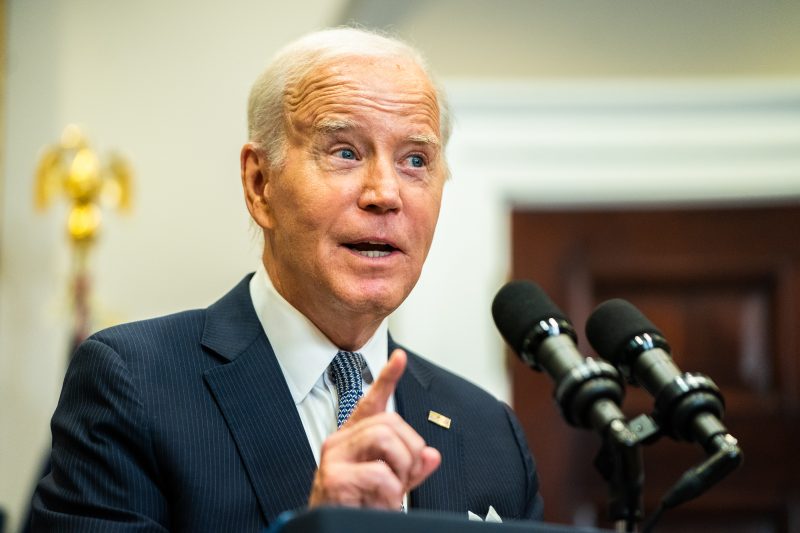In a recent development that has stirred up conversations among legal experts and political pundits, President Joe Biden has publicly expressed his support for Supreme Court reforms. Amid growing concerns over the court’s independence and accountability, Biden has endorsed an amendment that seeks to limit immunity for justices, a move that could potentially have far-reaching implications on the structure and functioning of the highest judicial body in the country.
The proposal to amend the Constitution to restrict immunity for Supreme Court justices comes at a time when the court’s decisions and actions have been under increased scrutiny and calls for reform have been mounting from various quarters. Critics argue that the lifetime tenure and absolute immunity bestowed upon justices create a cozy and insulated environment that shields them from accountability for their decisions and behavior.
The idea of limiting immunity for Supreme Court justices is not new, but it has gained significant traction in recent years as concerns over the perceived politicization of the court and the lack of transparency in its proceedings have intensified. Proponents of the amendment argue that subjecting justices to some form of accountability, such as impeachment or removal for misconduct, would help restore public trust in the judiciary and ensure that justices are held to the same standards as other government officials.
However, the proposal has also attracted its fair share of criticism and skepticism. Opponents of the amendment argue that limiting immunity for Supreme Court justices could undermine the independence of the judiciary and expose justices to undue political pressure and influence. They contend that lifetime tenure and immunity are essential safeguards that protect the judiciary from external interference and ensure that justices can make impartial and principled decisions without fear of reprisal.
The debate over Supreme Court reforms and the proposal to limit immunity for justices reflects broader concerns about the role of the judiciary in a democracy and the need to balance independence with accountability. As the highest court in the land, the Supreme Court wields immense power and influence, shaping the legal landscape and impacting the lives of millions of Americans through its decisions.
While President Biden’s endorsement of the proposed amendment is a significant development, the road to constitutional change is long and arduous. Any amendment to limit immunity for Supreme Court justices would require widespread support from Congress and the states, a process that is fraught with challenges and obstacles. Moreover, the amendment would need to navigate complex legal and constitutional issues, including questions about the separation of powers and the balance of responsibilities between the branches of government.
As the debate over Supreme Court reforms continues to unfold, it is clear that the issue of limiting immunity for justices has sparked a lively and contentious discussion within legal and political circles. The future of the proposal remains uncertain, but one thing is certain: the debate over the structure and accountability of the Supreme Court is far from over, and the outcome will have profound implications for the future of American democracy.

